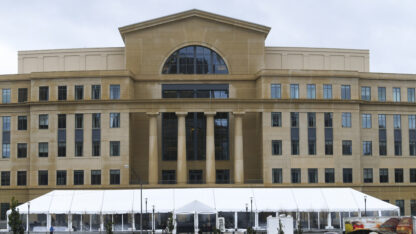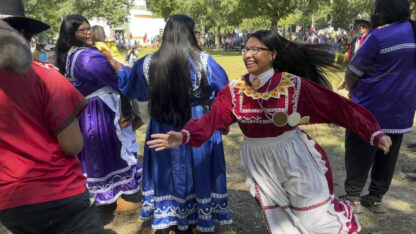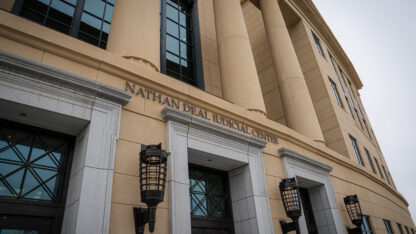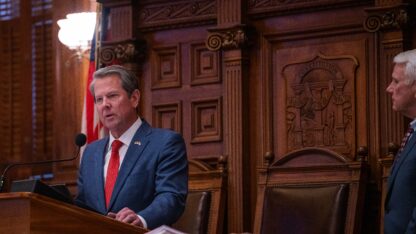Atlanta voters pick new mayor as crime fears dominate
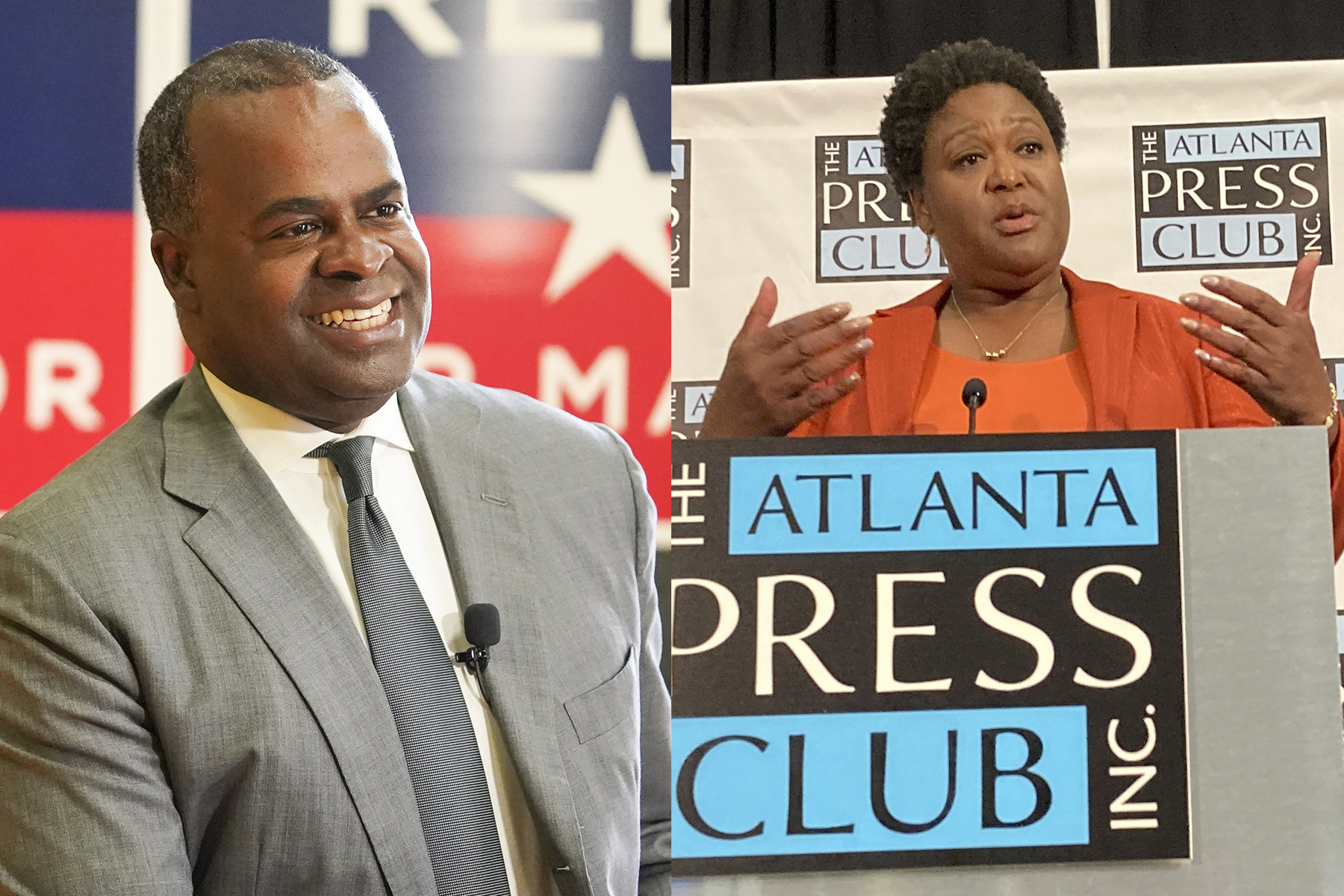
Former Mayor Kasim Reed and Atlanta CIty Council President Felicia Moore are running for mayor of Atlanta along with 17 other candidates
Brynn Anderson/Jeff Amy / Associated Press
Former Atlanta Mayor Kasim Reed is trying to return for a third term and City Council President Felicia Moore is seeking to move up to the top spot as voting concludes Tuesday in the city’s mayoral race.
The race has been focused on fears of crime, although candidates have also addressed concerns about affordable housing, bolstering struggling city services and keeping the wealthy Buckhead neighborhood from seceding. Attacks on Reed over corruption in his administration have been a major subplot, although Reed says federal officials closed their investigation without charging him.
With a total of 14 candidates in the nonpartisan race, a Nov. 30 runoff is likely. Besides Reed and Moore, top candidates include attorney Sharon Gay and council members Andre Dickens and Antonio Brown. Polling has shown Reed and Moore as the leading candidates, but there have been large numbers of undecided voters.
The race was jolted when Mayor Keisha Lance Bottoms announced in May that she wouldn’t seek a second term. Bottoms broke a decades-long tradition of mayors serving eight years, saying she wasn’t interested in a reelection bid. The last Atlanta mayor who served only a single term was Sam Massell, who lost to Maynard Jackson in 1973 as African Americans took power in city government.
About 45,000 people voted early through Thursday, mostly voting in-person. That’s nearly half of the 97,000 votes cast in the first round of the 2017 elections. Bottoms later edged out Mary Norwood by 832 votes in a runoff.
Like cities across the country, homicides have increased in Atlanta. As of Oct. 9, murders were up 14% over the same period last year and 60% compared with 2019, Atlanta police data shows. Several high-profile killings have captured attention, including a woman stabbed to death late at night in Atlanta’s most prominent park and a bartender abducted and shot dead while returning home from a late shift.
Reed, who served two four-year terms beginning in 2010, left office amid a federal investigation into corruption at City Hall. A half-dozen members of his administration have been indicted. Some pleaded guilty and others await trial. Reed was never charged, and his lawyers said federal prosecutors told them in August that the inquiry into Reed had been closed. Federal prosecutors have not commented on that claim.
Others argue that even if Reed wasn’t indicted, the fact that so much malfeasance occurred during his tenure should disqualify him. In an Oct. 12 debate hosted by the Atlanta Press Club, Moore said Reed led “the most corrupt administration in Atlanta history.”
Reed argues he’s uniquely qualified to confront crime, pledging to increase the number of officers as he did earlier when he was mayor and crime rates were lower.
The sometimes-imperious Reed turns many residents off. In one drama, the national NAACP rebuked the president of its Atlanta branch for publishing a scathing takedown which slammed Reed’s record on corruption, a lack of affordable housing and large incentives for the Atlanta Falcons stadium. But the city police union, which had been a fierce critic of Reed’s cutbacks in the city pension system, endorsed his comeback bid.
Moore was first elected to council in 1997 and was elected citywide as council president in 2017. She touts her legislative record, and promises greater accountability and transparency. Moore entered the race before Bottoms bowed out, and is a longtime critic of Reed.
Dickens has been endorsed by former Mayor Shirley Franklin and touts increasing the number of officers, arresting gang leaders and implementing community policing. He also aims to increase affordable housing, improve infrastructure and ensure current residents qualify for high-paying jobs.
Gay, recently managing partner of a law firm, was previously a top city appointed official under Mayor Bill Campbell. She’s the only white candidate among the top five, in a city with a long history of racially polarized voting.
Brown says generational poverty, gentrification and insufficient affordable housing feed unemployment, homelessness and crime.
He’s currently under federal indictment, accused of borrowing money and making credit card purchases and then claiming his identity was stolen. The alleged crimes took place before his election to City Council, and Brown denies guilt.





